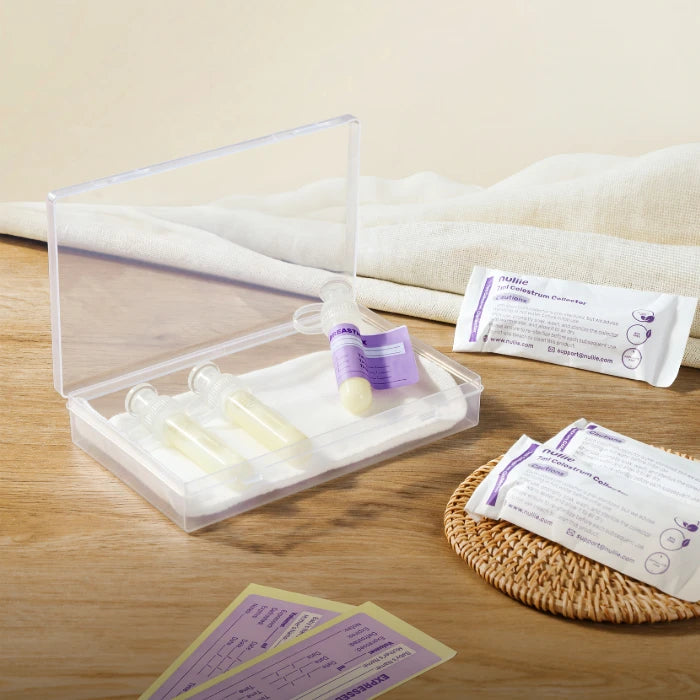Breastfeeding is a beautiful journey that creates a strong bond between a mother and her baby. But while you’re focusing on nurturing your little one, you might wonder: Can you get pregnant while breastfeeding? It’s a question that pops up frequently, and the answer isn’t as simple as a yes or no. Let’s dive into the details and debunk the myths.
Understanding Lactational Amenorrhea
- What is Lactational Amenorrhea?
Lactational Amenorrhea (LAM) is a natural form of birth control that occurs when you’re exclusively breastfeeding. It works by suppressing ovulation through the release of a hormone called prolactin. Prolactin helps produce milk but also delays the return of your menstrual cycle, which means you’re not ovulating during this time.
- How Does LAM Work as a Birth Control Method?
LAM can be an effective birth control method, but only under specific conditions. To rely on it, you need to be exclusively breastfeeding, meaning no formula or solid food for your baby. Additionally, your baby must be under six months old, and you should not have gotten your period back yet. If these conditions are met, LAM can provide 98% protection against pregnancy.
- When Does LAM Stop Working?
As your baby gets older and starts eating solid foods or sleeping longer stretches at night, breastfeeding becomes less frequent. This reduction in breastfeeding signals your body to produce less prolactin, which may lead to the return of your menstrual cycle and, with it, ovulation. When this happens, LAM is no longer as reliable as birth control.

Common Misconceptions and Facts
- Myth: You Can’t Get Pregnant While Breastfeeding
This is one of the biggest misconceptions out there. While it’s true that breastfeeding can delay ovulation, it’s not a foolproof method of birth control. If you’re not exclusively breastfeeding or if your period has returned, your chances of getting pregnant increase.
- Myth: You’re Completely Infertile While Breastfeeding
Breastfeeding does suppress ovulation, but it doesn’t guarantee you won’t ovulate at all. Ovulation can sneak up on you before you even realize it, and you can get pregnant during this time—sometimes even before your first postpartum period.
- Fact: Exclusive Breastfeeding Can Delay Ovulation
The key word here is “exclusive.” If you’re breastfeeding your baby without supplementing with formula or solids, LAM may effectively delay ovulation. However, as soon as you start introducing other forms of nourishment, your body begins to adjust, and ovulation could return.

When to Expect Fertility to Return
- Factors That Affect the Return of Fertility
Every woman is different, and the return of fertility while breastfeeding varies widely. Some women may see their periods return just a few months postpartum, while others may not menstruate for over a year. Several factors influence this, including the frequency and duration of breastfeeding sessions, whether you’re supplementing with formula and your overall health and body chemistry.
- Signs That Ovulation is Returning
It’s tricky because ovulation can return without warning. However, there are a few signs that your fertility might be returning. You might notice changes in your cervical mucus, which becomes clearer and more slippery when you’re fertile. Other signs include mild cramping, tender breasts, or an increase in libido. The return of your period is the most obvious sign, but ovulation typically occurs before that first period, meaning you could already be fertile before bleeding starts.
- Tracking Ovulation While Breastfeeding
If you want to be proactive about understanding when your fertility might return, consider tracking your ovulation. You can do this by monitoring your cervical mucus, using ovulation predictor kits, or taking your basal body temperature each morning. Just remember, breastfeeding can make it harder to track ovulation accurately, so be mindful of that when using natural family planning methods.

How to Safely Plan for Your Next Pregnancy
- Talk to Your Doctor About Family Planning
If you’re thinking about having another baby while breastfeeding, it’s always a good idea to chat with your doctor first. They can help you understand your body’s unique fertility signs and recommend safe birth control methods if you’re not ready for another pregnancy just yet. They can also provide guidance on when it’s healthiest to conceive again, especially if you had a C-section or other complications during your first delivery.
- Safe Birth Control Options While Breastfeeding
Not all birth control methods are suitable for breastfeeding mothers, as some can affect milk supply. Fortunately, several options won’t interfere with your ability to nurse. Non-hormonal methods, such as condoms, diaphragms, or copper IUDs, are safe and effective. If you prefer hormonal birth control, you can opt for progestin-only pills, which are less likely to affect milk production compared to combination pills that contain estrogen.
- Tips for Planning Your Next Pregnancy
If you’re ready to add to your family, there are a few things to keep in mind. First, make sure your body has had enough time to recover from your previous pregnancy. Most doctors recommend waiting at least 18 months before trying to conceive again to reduce the risk of complications like preterm birth. Once you feel ready, tracking your ovulation can help you determine the best time to try for another baby.

Breastfeeding can delay the return of your fertility, but it doesn’t make you immune to pregnancy. Understanding how lactational amenorrhea works, debunking common myths, and recognizing when your fertility might return are crucial steps in planning your next pregnancy (or avoiding one!). Whether you’re relying on natural methods or using birth control, it’s essential to stay informed about your body and consult with your doctor to make the best choices for your health and family planning goals.









Leave a comment
This site is protected by hCaptcha and the hCaptcha Privacy Policy and Terms of Service apply.